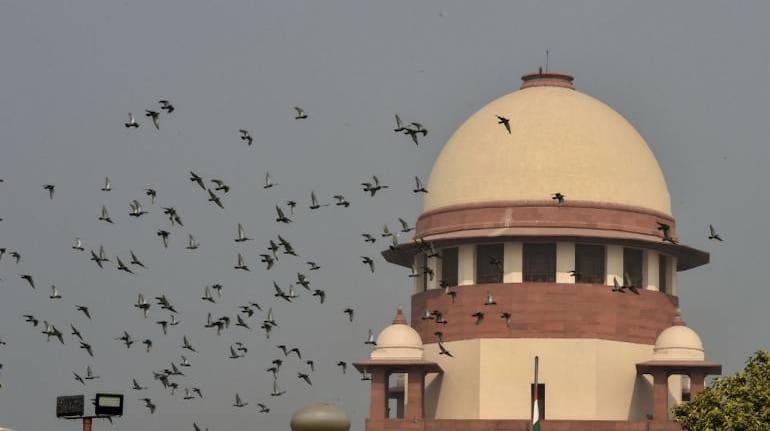



By all accounts, Karan Johar’s second movie, Kabhi Khushi Kabhie Gham, made waves when it released. Depending on one’s persuasion toward Bollywood romances, people loved it, or cringed. One man, though, was offended. The movie had a scene where India’s national anthem was played. Should the anthem be used for mere entertainment, he asked. Plus, when it was played in the midst of the movie, his fellow movie-goers didn’t stand to show respect.
He approached the Madhya Pradesh High Court through a Public Interest Litigation (PIL), seeking scrapping of the movie from theatres. The case was listed before Justice Dipak Misra, who would become the Chief Justice of India more than a decade later. Misra agreed with the petitioner, and directed withdrawal of the movie. Johar appealed to the Supreme Court, which overruled the high court order and revoked the ban, and there that matter rested.
Fast forward to 2016: Justice Misra was now a judge in the Supreme Court, when the same petitioner filed a petition, under Article 32 of the Constitution which allows any individual to approach the Supreme Court if their Fundamental Rights are violated, directly in the Supreme Court seeking respect for the national anthem played in theatres. Perhaps coincidentally, the petition came to be listed before Justice Misra, who obliged him a second time, mandating that all movie halls across India were to play the anthem before each movie-screening, and all patrons were to compulsorily stand.
This time, though, there was no possibility of an appeal, since the Supreme Court is the highest judicial authority in India. Thankfully, after reports emerged of vigilante citizens using the directive to harass and assault others, the apex court backtracked and withdrew its earlier order.
Over the last fortnight, much has been written over Chief Justice Sharad Bobde’s comment that the Supreme Court was discouraging Article 32 petitions. References to BR Ambedkar’s description of the article as the ‘heart’ and the ‘soul’ of the constitution abounded.
Indeed, Article 32 has given life to the Constitution — most notably in 1965, when Socialist Party leader Ram Manohar Lohia wrote a letter in Hindi to the chief justice from the jail where he was incarcerated claiming his rights were violated. The Supreme Court intervened to set him free.
All the same, the provision is also the basis for the myriad PILs being filed before the Supreme Court. This is the distinction that fans of Article 32 miss. When the Constitution was drafted, Fundamental Rights were about individual rights being violated by the State, mostly in the realm of criminal law — such as an allegedly unlawful detention.
Today, the scope of such petitions have been expanded so much so that just about any idea or cause can be converted into a PIL and filed directly with the Supreme Court. Many of these, however well-intentioned, would also prejudicially impact other interest groups, who often are not made parties to the case, or have other unforeseen consequences (such as the ban on liquor vends within 50 metres of national highways).
In other cases, a badly presented petition might prejudicially affect the interest of the very persons who the petitioner claims to protect (for example, price-caps on medical treatments and drugs). Any one of these PILs, with an obliging judge, has the potential to create a super-legislature, giving birth to a law without judicial remedy to anybody else who might be aggrieved.
Whatever be the merits of the court’s ruling, such a system where judges can lay down law unfettered by judicial scrutiny, is antithetical to the rule of law. If judges believe that they are also human and prone to mistakes, as they often say, then there is simply no scope for far-reaching judgments without checks and balances in place. (A similar argument has to be made about the use of contempt of court powers by the Supreme Court — without the possibility of appeal, the alleged contemnor is browbeaten into apologising to the court or risk going to jail, however strong their defence is — but that’s another discussion.)
What about the benefits that might come out of well-minded PILs, one might be tempted to ask. After all, Public Interest Litigation is a huge necessity in a country like India where it cannot be taken for granted that public officials will not act negligently. What that question misses is the fact that just about any remedy that one might approach and obtain from the Supreme Court is also available at the high courts. For many — politicians, upcoming lawyers, and lately, law students — approaching the Supreme Court is simply a publicity-drive while massaging their own egos. The court must stop being indulgent.
Discover the latest Business News, Sensex, and Nifty updates. Obtain Personal Finance insights, tax queries, and expert opinions on Moneycontrol or download the Moneycontrol App to stay updated!
Find the best of Al News in one place, specially curated for you every weekend.
Stay on top of the latest tech trends and biggest startup news.